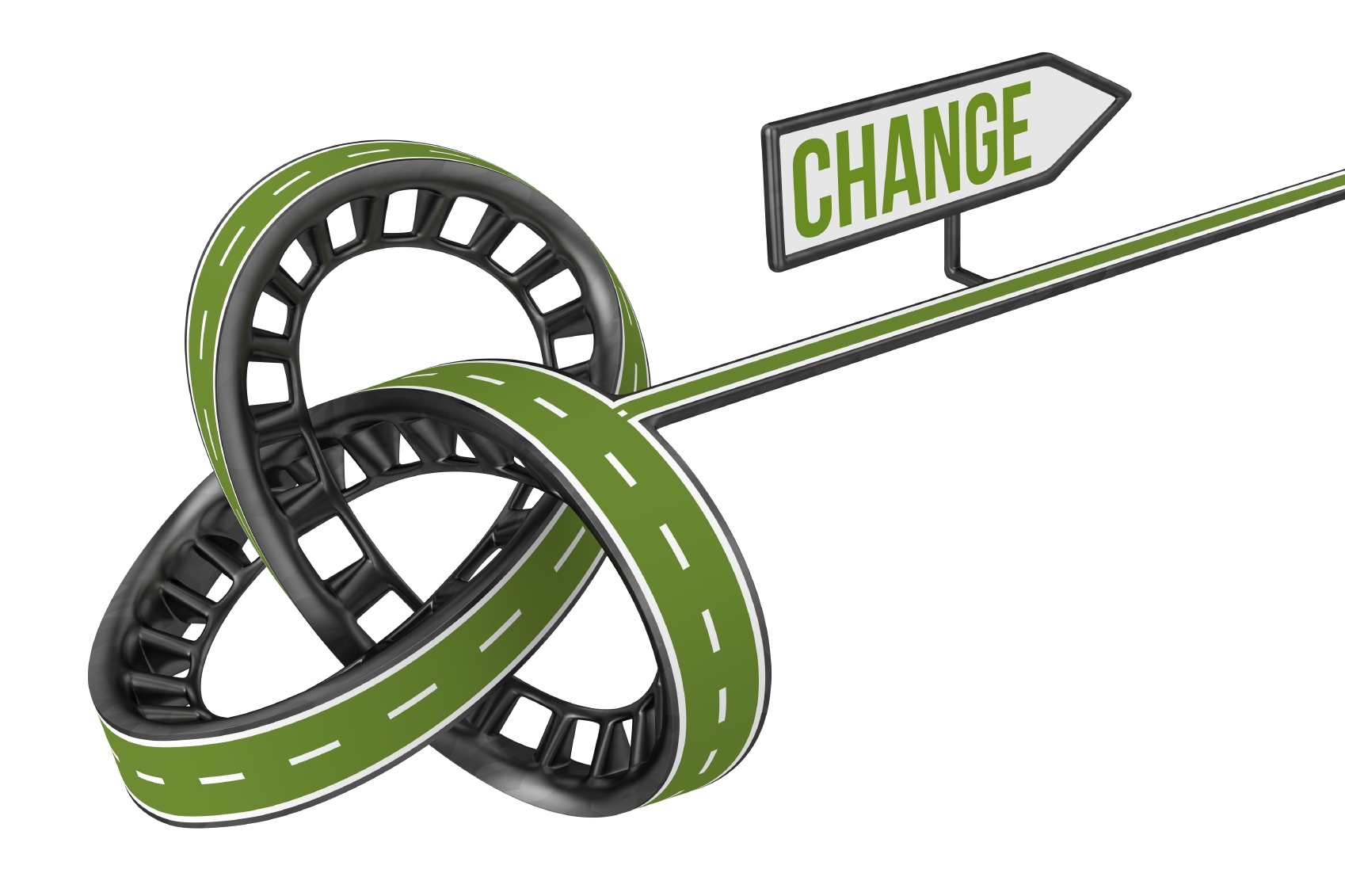The world is in the messy middle of transformational change, and it sucks.
The middle of every change – under the best of circumstances – can create anxiety, frustration, and insecurity. It feels like being stranded in the median of a busy highway with traffic speeding by in both directions. You can’t go back, and you must cautiously inch your way forward.
There is very little about the past 18 months that feels like the “best of circumstances.”
Dr. Pauline Boss originated the term “ambiguous loss” to describe how we feel when a loss is unusually prolonged or painful because one or more key elements remain uncertain.
Jude Ellison S. Doyle explained it this way: “Being unable to determine whether something is here or gone, living or dead, ongoing or over, is what makes a loss ambiguous – and that is what the pandemic has inflicted on most of us.”
To expand the “stranded in the middle” analogy: It is night, and the traffic is moving at 100 mph with no lights. There is no certainty about when it will be safe to leave the median or what awaits on the other side. It feels as if this could go on forever, and you have to go to the bathroom really bad.
There are hopes, dreams, and glimpses of our New Next, but the only thing we know for sure is that we are not fully going back to 2019.
Where Leaders Shine
Your job as a leader is to help those you influence through the painful process of moving from the past they knew to the New Next.
A misstep can cause people to check out figuratively and literally. A fundamental lesson from The Great Resignation is that leaders helping others navigate the messy middle of change with compassionate authenticity and connection is crucial. Here are six strategies to help:
Acknowledge reality. Nothing ever changes until people acknowledge the truth. Be honest and open about your situation and its uncertainty. You shouldn’t be defeatist, but you must be honest.
Respect the past but focus on a positive vision for the future. Unless you are dealing with intentional misconduct, everything that frustrates you in your organization today was someone’s well-intentioned attempt to do what they thought was best … including the missteps that occurred as you learned to operate in a COVID world. Some of the traditions and policies which served you well in the past are no longer suited for today’s world. Don’t disrespect them as you focus on a different future.
Define what is and isn’t changing. Uncertainty creates confusion that slows our ability to navigate change. Clarity promotes focus and perspective—both of which minimize distraction and generate urgency. You don’t want people to feel as if everything is changing if it isn’t. You also don’t want them to assume that nothing is different. Be as specific as possible even when you can only clearly see a step or two ahead.
Commit to transparency and over communicate. People want to know how things are going, what’s coming next, and why actions are (or are not) being taken. A lack of transparency creates a vacuum that will be filled by conspiracy theorists and imaginations on over drive. Mix planned updates with as needed communication to address important developments. Lean into over-communication and then solicit feedback to determine if the frequency should be altered.
Ensure the important stuff continues. The important stuff right now is connections and relationships. It is easy to become so fixated on the tasks and activities of delivering results that caring about people falls lower on the priority list.
Hall of Fame gymnastics coach Valorie Kondos Field put it this way in her 2019 TED Talk: “ All across America and around the world, we have a crisis in the win-at-all-cost cultures that we have created. … As a society, we honor the people at the top of the pyramid. We effusively applaud those people who win championships and elections and awards. But sadly, quite often, those same people are leaving their institutions as damaged human beings.”
Celebrate the wins. We tend to celebrate the end or completion of things – birthdays, anniversaries, retirements. Why wait? Nothing lifts the spirits in the face of uncertainty like good news about successes.
William Bridges was right, “It’s not the changes that do you in. It’s the transitions.”
The messy middle of change can be the wasteland where transformation dies. It can also create confidence and energize action. It depends on you.
Randy Pennington is an award-winning author, speaker, and leading authority on helping organizations deliver positive results in a world of uncertainty and change. To learn more or to engage Randy for your next meeting, visit www.penningtongroup.com, email info@penningtongroup.com, or call 972-980-9857 (U.S.).
This article first appeared on LinkedIn.




